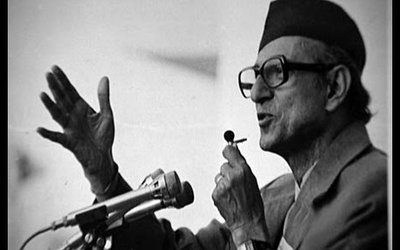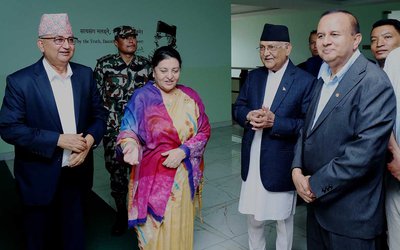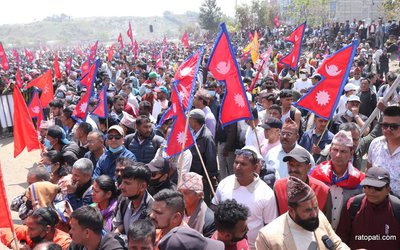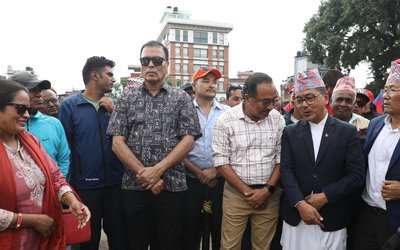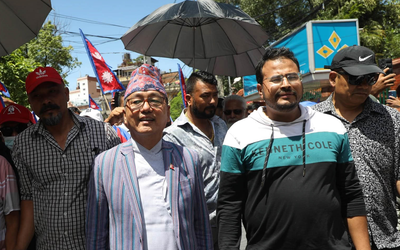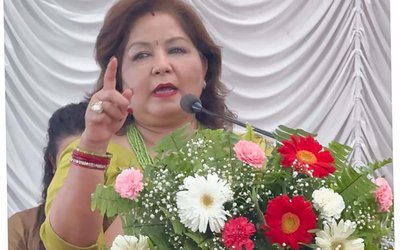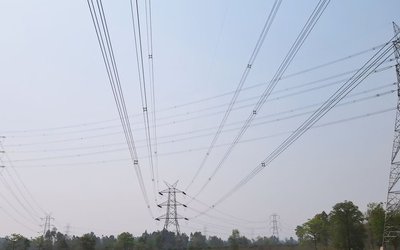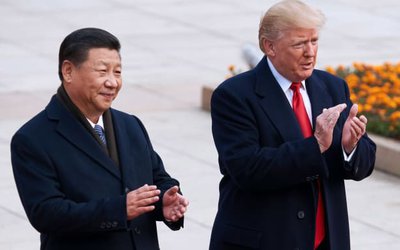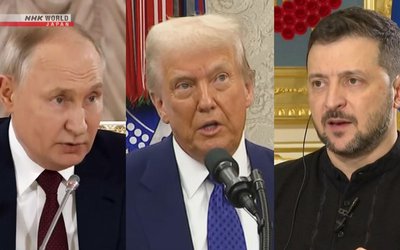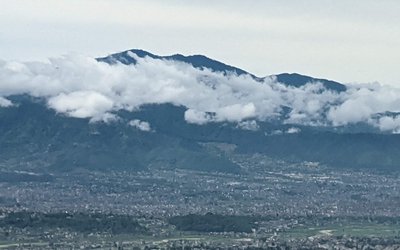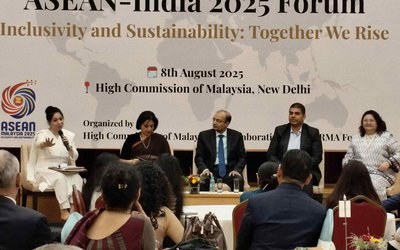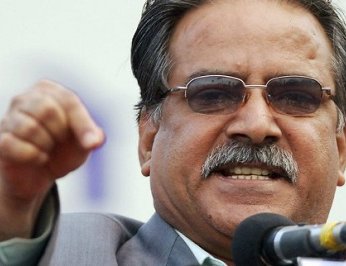
What had long been discussed in private has now been made public. And it is none other than the man who is known to blow the whistle for personal or partisan interest. He did it when he was leading a gun wielding outfit in the jungles. And when he was sitting the seat of power at Singh Durbar.
The man is Pushpa Kamal Dahal. The former guerrilla leader and former prime minister and presently the main opposition leader has talked about the geopolitical challenges of the constitution-making process. Not in the closed-door chat, but in a press conference at his residence. He said that taking the neighbours' concerns into account is no less important than addressing the aspiration of the Nepali people.
The comments came at a time when the snail-paced progress in the constitution making was thought to have gained some momentum. Bowing to one of his conditions to expedite the constitution making process, the governing parties had agreed to constitute a high level political mechanism and give him the chair for the first two months. The key committee of the constituent assembly had its term for submitting the draft of the constitution extended. The three big parties had seemed to narrow down their differences on contentious issues like the state-restructuring and the form of government, judicial system etc in the new constitution.
Having chaired the first meeting of the high level political mechanism, however, Dahal expressed doubts if the CA can meet the January next's deadline to make the new statute. He even went as far as to suspect that a move is on to derail the entire process so as "to deny the country a progressive constitution of the people's aspirations." His main target of attack was the Nepali Congress (NC) which had only the other day floated its model of federalism consisting of six/seven provinces which it said was presented keeping into consideration regional interdependency, economic and administrative viability and population. Its junior coalition partner United Marxist Leninist (UML) was very closer to the model.
Many commentators have pointed out that the small number of provinces envisaged by the NC is its positive aspect compared to other models offered by some other major parties. Another major highlight of the proposal is the equitable distribution of resources and to maintain a balance in the distribution of population among the provinces.
With the official proposal of the largest party in the Constituent Assembly, the debate on federalism was further expected to heat up. The UML had already proposed a similar federal model. The main opposition CPN (Maoist) and Madhes-based parties had stood for 10 or 14 states but they said they were open to be flexible. The Maoist party that Dahal leads was seen not very averse to the proposal except that it did insist more on identity and that the focus on identity would require more provinces to be established than had been proposed by the Nepali Congress and the UML.
But the real challenge lies somewhere else became evident when Dahal told reporters that both India and China have their respective stakes in Nepal's proposed state-restructuring. While India is sensitive about the shape, form and the number of provinces in the southern border plains China is categorical that there should not be many provinces in the northern border hills.
It is the security concerns that is at the centre of the two giant neighbours' interest in the future federal set-up of Nepal. That they have their interest in how Nepal makes its new constitution was never a secret nor was their interest in the federal set-up under the new statute. The two neighbours had given ample hints in the past.
But a top Nepali leader, whose role is considered crucial in making the new constitution, would go public and hint that the geo-political challenges could prove an impediment to the kind of the constitution Nepali "aspire" for is something new. This could mean the realisation on the part of all the key leaders and the parties they represent that the statute-making process is not in the hands of the Nepali actors alone although Dahal, like many other leaders, said that the decision has to be taken ultimately by the Nepali people themselves.
If anything, the latest Dahal remarks point to the fact that the fate of the future Nepal, with a new constitution or without it, will largely depend more on what they think in Delhi and Beijing than on what we do in Kathmandu.
- Ukrainian Crisis And The World (Dis)Order
- Apr 22, 2022
- China’s Cautious Steps In The Graveyard Of Empires
- Aug 18, 2021
- Foreign Aid On The Fence!
- Aug 08, 2021
- Communist Party of China centenary celebrations Reading between the lips
- Jul 14, 2021
- Second Wave Of Covid-19 In India: Deadly Blow To The Economy
- Jun 23, 2021

